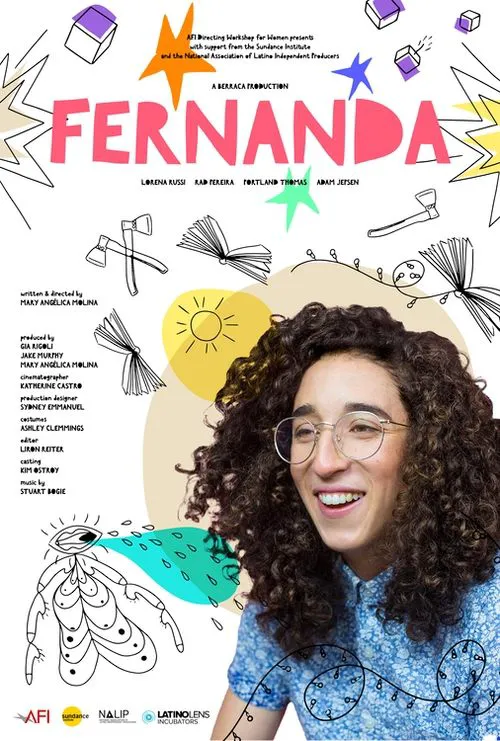Fernanda

Plot
Fernanda is an unapologetic and unfiltered look at the life of a young Latinx lesbian woman navigating her identity, relationships, and aspirations in the midst of chaotic adolescence. The film delves into the complexities of Fernanda's psyche as she grapples with feelings of inadequacy, frustration, and disillusionment with the world around her. The story begins with Fernanda, a vibrant and outspoken woman in her twenties, struggling to find her footing in life. She's a passionate idealist who longs to make a difference in the world, but her reality is far from her ideals. Her relationship is strained, her job is unfulfilling, and she's constantly at odds with her own insecurities. Fernanda's closest friends become her confidantes, a charming and empathetic cabal of misfits who accept her for who she is. Together, they form a support system that is equal parts truth-telling and tear-jerking. They engage in spirited debates, raucous sexcapades, and impromptu sessions of cathartic wailing. These moments of unguarded intimacy provide a glimpse into Fernanda's unspoken fears, desires, and fantasies. As Fernanda navigates her relationships, she undergoes a series of transformative encounters that upend her assumptions and challenge her worldview. She falls deeply in love with a woman who embodies the very qualities she admires - passion, conviction, and resilience. Their romance is a whirlwind of exploration and discovery, as they move from tender moments to intense, exhausting confrontations. However, their love is tested when Fernanda's partner begins to settle down, seeking stability and security in the midst of Fernanda's anarchic worldview. The tension between them becomes unsustainable, and they implode in a spectacular display of fury, sadness, and recrimination. The film doesn't shy away from Fernanda's dysfunctions and flaws. She's a mess of contradictions - a struggling artist with a talent for critique, a hopeless romantic with a penchant for sabotaging her own relationships. Her flaws are a source of both humor and distress, as she careens from one emotional crash to the next. In the midst of Fernanda's personal turmoil, a broader social context is also at play. The film touches on the struggle for Latinx representation, the LGBTQ+ community's fight for acceptance, and the enduring struggle for economic empowerment. Fernanda's friends and allies become a source of strength and solidarity in the face of systemic oppression. Through Fernanda's story, the film reframes notions of identity, community, and power. The narrative is character-driven, with Fernanda at its center - a complex, imperfect, and relentlessly authentic protagonist. Her journeys are both deeply personal and far-reaching, tackling big questions about art, sex, love, and politics. Ultimately, Fernanda's journey is one of self-discovery and resilience, as she confronts the demons that haunt her and struggles to create a life that is truly hers. The film's cathartic ending is bittersweet, leaving the viewer with a sense of Fernanda's precarious balance between chaos and control. As she embarks on the next chapter of her journey, Fernanda remains an unfinished work in progress, a compelling and deeply human testament to the power of self-redemption.
Reviews
Kiara
Well-designed with a Latin American narrative pattern, but flawed in its execution. The director must be a libertarian teaching film at Emerson.
Miles
Visually beautiful, but ultimately mediocre. This director needs to study more from Krzysztof Kieślowski (the last few minutes felt like an experimental film).
Recommendations

